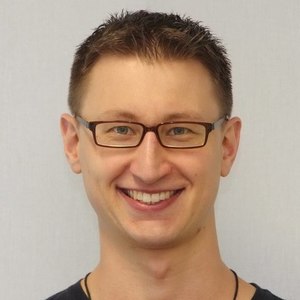Deriving a Tongue Model from MRI Data

The tongue plays a vital part in everyday life where we use it extensively during speech production. Due to this importance, we want to derive a parametric shape model of the tongue. This model enables us to reconstruct the full tongue shape from a sparse set of points, like for example motion capture data. Moreover, we can use such a model in simulations of the vocal tract to perform articulatory speech synthesis or to create animated virtual avatars. In my talk, I describe a framework for deriving such a model from MRI scans of the vocal tract. In particular, this framework uses image denoising and segmentation methods to produce a point cloud approximating the vocal tract surface. In this context, I will also discuss how palatal contacts of the tongue can be handled, i.e., situations where the tongue touches the palate and thus no tongue boundary is visible. Afterwards, template matching is used to derive a mesh representation of the tongue from this cloud. The acquired meshes are finally used to construct a multilinear model.
Speaker Biography
Alexander Hewer (Saarland University )
PhD student
Alexander Hewer received his BSc in Computer Science in 2009, and his MSc degrees in Computer Science and Visual Computing in 2012 and 2013, respectively, from Saarland University, Saarbrücken, Germany. Currently, he is a PhD candidate in the Saarbrücken Graduate School of Computer Science where he is part of the Multimodal Speech Processing group headed by Dr. Ingmar Steiner. His research interests lie in image processing, computer vision, template matching, and shape analysis of human articulators.
